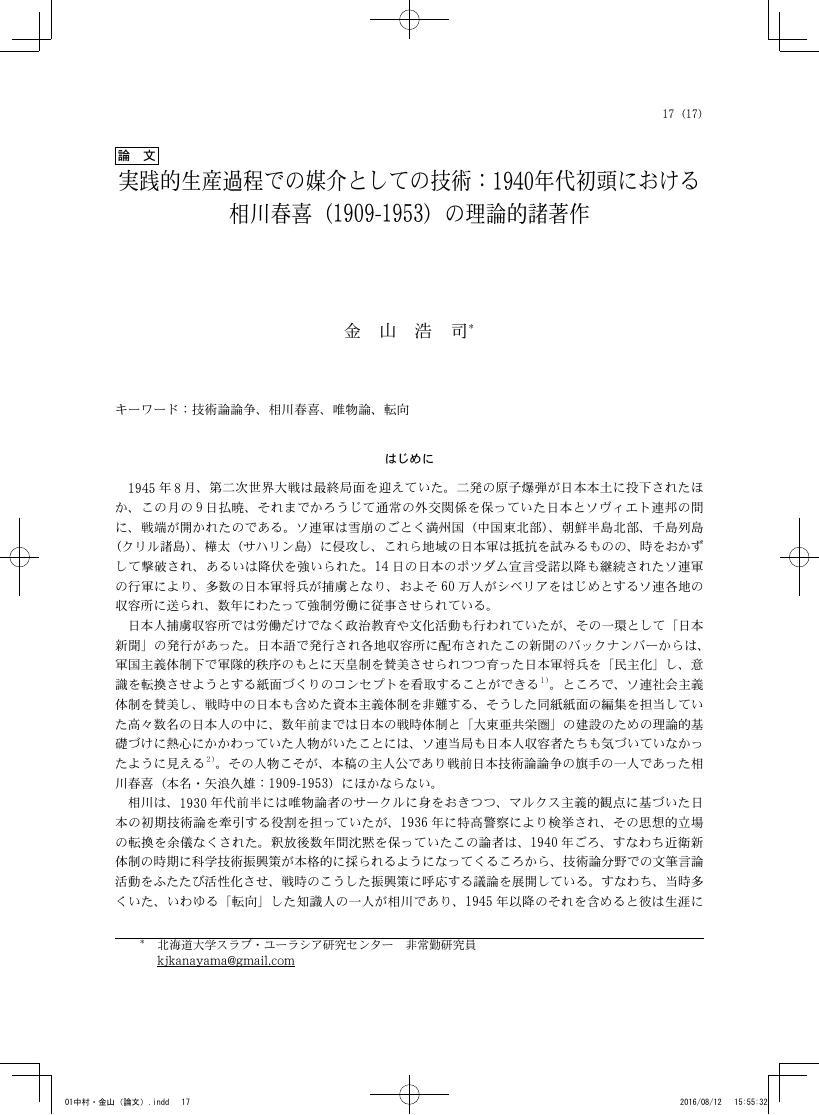- 著者
- 金山 浩司
- 出版者
- 日本科学史学会
- 雑誌
- 科学史研究 (ISSN:21887535)
- 巻号頁・発行日
- vol.54, no.273, pp.17, 2015 (Released:2020-12-14)
AIKAWA Haruki, one of the prominent theorists of technology study in Japan in the prewar period, put forward fresh philosophical understandings of technology in the first days of the 1940s. He saw the unification of the subjective humanity and objective material in the dynamic process of production and regarded technology as a medium of such unification. By investigating his books published in the period of the Konoe's New Order, present paper seeks to reveal how Aikawa acquired his own idea on technology. It also aims to put the improvement of his thought in the sociopolitical context of wartime Japan. In the first half of the 1930s, Aikawa had a materialistic view: that is, he observed that the nature of technology was represented in the means of labor in itself. Although Aikawa's idea was accepted among members of the Society for the Study of Materialism as one of the possible Marxist understandings of technology, it was also criticized for ignoring the importance of the subjective labor force in the process of production. After his arrest as a suspected communist sympathizer in 1936, Aikawa abandoned his previous standpoint and came to be a spokesman of the war policy of Imperial Japan. We should not regard this alternating process as a simple conversion under the suppression of the Japanese militarists, however. Aikawa certainly made a compromise, but at the same time, he intended to develop his idea on technology by accepting criticism by materialists. In such a process Aikawa succeeded in making his thought a more balanced one.
言及状況
外部データベース (DOI)
Twitter (4 users, 5 posts, 4 favorites)
@kanayVc すでにオープンアクセスになっています。
https://t.co/gVpDjCULpX https://t.co/MwYrWE3dfW
